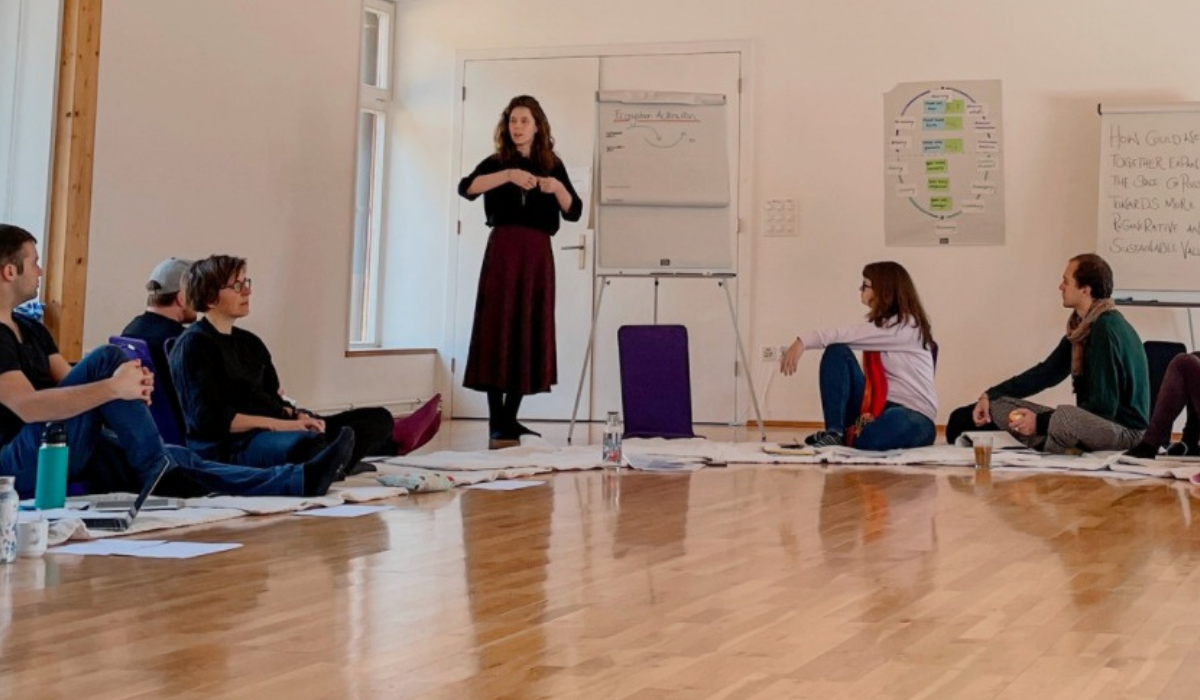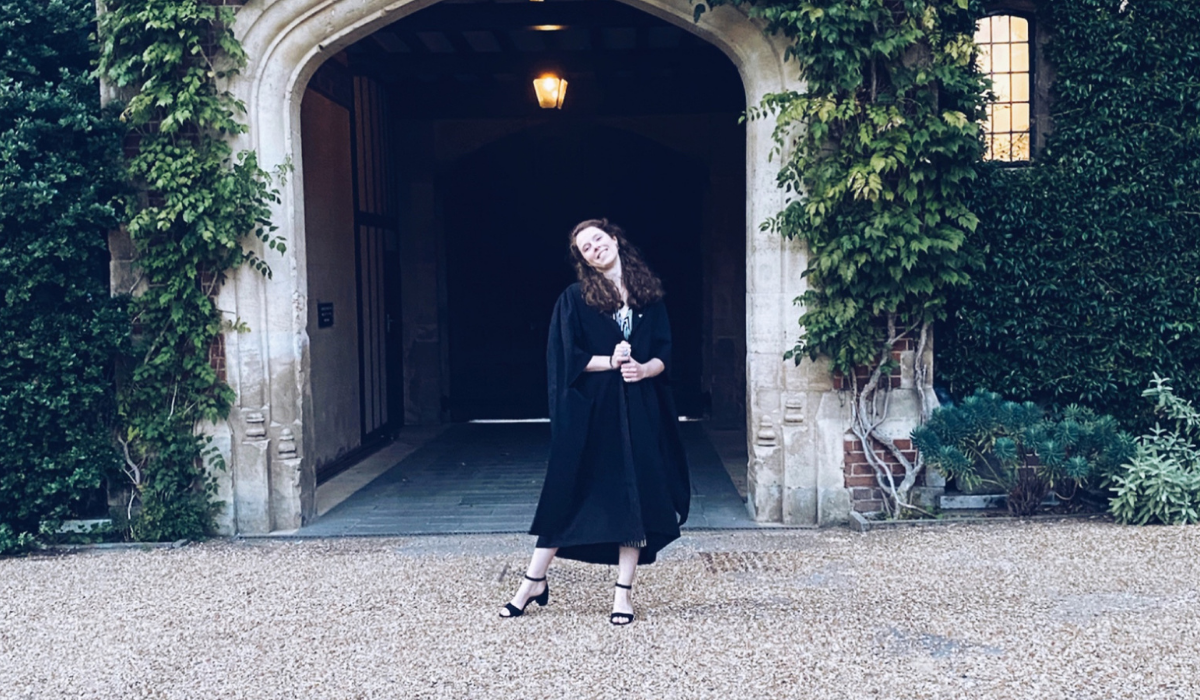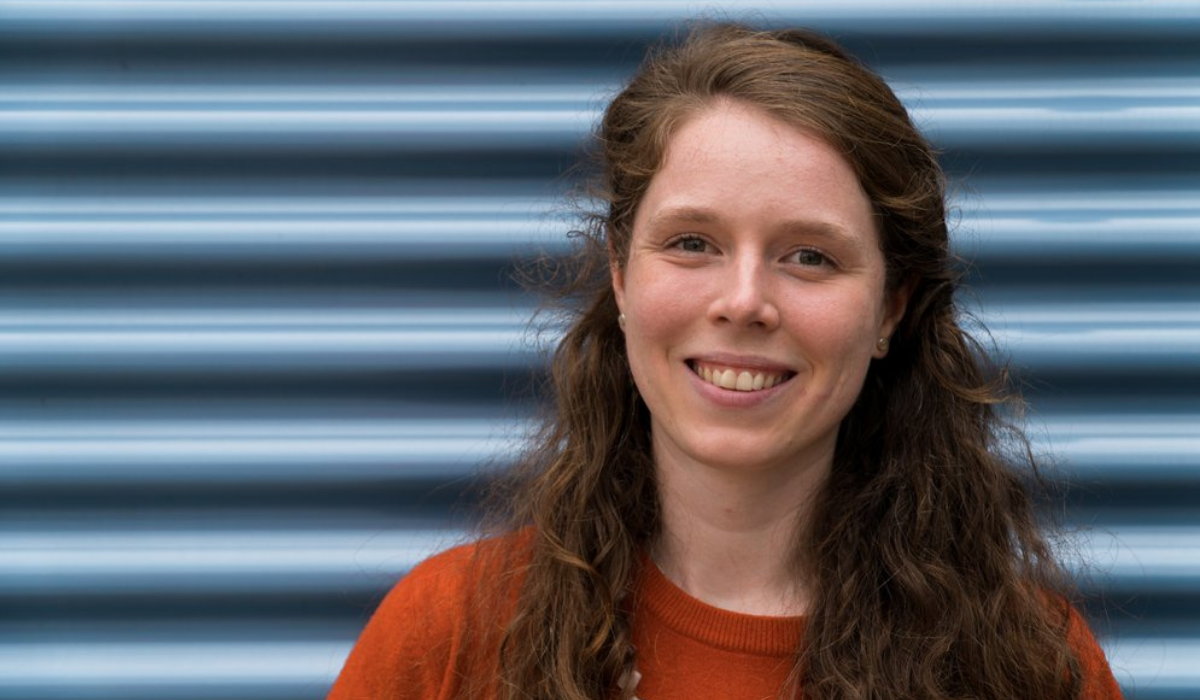Lucy student, Nora Wilhelm, explains her vision of a future in which humans and the planet can thrive.
Ever since my awakening to the realities of climate change and global inequality at age 15, I have moved from shock and anger to trying to make the best contribution I possibly can. Growing up in Geneva, I was an activist, volunteer and intern for development NGOs, and also participated in numerous UN conferences for youth. For many years, I was engaged in the European Youth Parliament to foster the active citizenship and personal development of young people across the continent. I presided over the European Youth Parliament Switzerland from 2014 to 2016 and, in 2016, organised an International Session, under the patronage of the then Swiss President. Participants still write expressing how much this experience changed their life. It is vital that youth know that they matter, that they can have an impact and that they are not alone.
In 2017, I co-founded collaboratio helvetica, an initiative that catalyses systemic change towards the Agenda 2030 in Switzerland by cultivating a cross-sectoral innovation ecosystem, running different capacity-building programs and open knowledge sharing. I receive regular invitations from academia as well as the public and the private sector to share these solutions, approaches, and perspectives. For example, I opened the first-ever lecture series about the Agenda 2030 at the ETH and I’ve spoken at the Conference of Swiss Development Cooperation, Swiss Conference of city mayors, and TEDx. The importance of this work was recognised through awards such as being on the Forbes 30 under 30 list, European Finalist in the UN Environment Programme and its Young Champion of the Earth 2020, UNESCO Young Leader and Outstanding Young Person of the Year in the category Ethics & Environment Leadership by JCI Switzerland. I want to point out here that a lot of these awards are focused on individuals as per the dominant paradigm of our society, yet our work has always been co-created by amazing collaborators who deserve to be, and are, celebrated for their contributions.

As a co-founder, a lot of my personal work has to do with holding a bold vision and representing this to the outside, making our projects possible which includes raising the needed funding and building partnerships, and building and developing an agile yet stable collaborative organisation. Due to the pioneering nature of systems change work, we are working with innovation and see ourselves as a prototype. This means seeing every step we take as an opportunity to test hypotheses, learn, improve our strategies and share these insights with the world. That’s also why we are an open-source organisation and you can find most of our tools online on our website. This drive to learn and contribute to developing this emerging field is also what has brought me to enrol on the MSt in Social Innovation at the University of Cambridge.
As a teenager, I was of the mind that I had to focus on one single cause to make my contribution and have the biggest possible positive impact, yet I could not make my mind up (climate change/sustainability, gender equity, integral education, etc). Hence, after graduating high school, I was enrolled at the University of St. Gallen for a BA in International Affairs because I figured that a degree covering politics, economics, business, and law would help me understand the workings of the world and pinpoint the issue most critical to work on. As I continued my extracurricular activities (e.g. with the European Youth Parliament, the Model United Nations Club) and political activism, this led me to do the work I do today so I am deeply grateful for how things unfolded. Indeed, with collaboratio helvetica I am focusing now on the how as opposed to the what. Instead of singling out one issue, I am working with the strategies and tools for change that can be applied to different topics, and am lucky to support changemakers working on very different and all deeply important challenges. In a way, not being a topic-specialist has become my career. My contribution to a better tomorrow now lies in things like being able to connect the dots, think and act holistically, value intersectionality, navigate change with a systems lens, and overcome silos or divides between topics and sectors.
A few years into collaboratio helvetica, I was able to free up some capacity to consider starting another degree, and the seed that had been planted years ago led me to look into courses at Cambridge University. I was delighted to find a course focused on Social Innovation, which in short refers to the effort to find solutions to social or environmental challenges. The focus of the course as well as the diversity of the students really spoke to me. Additionally, the course being part-time and designed with online learning as well as residential weeks in Cambridge meant that I could continue to develop collaboratio helvetica next to pursue this degree. I applied because I thought that this unique program will accompany, nurture and deepen my work in the field of societal transformation. Although it is difficult to juggle professional responsibilities and the requirements of an academically rigorous course, it has been great to gain deeper insight into the academic perspective within my field, acquire new research skills and learn alongside an inspiring and diverse cohort. I am also excited to contribute to filling a research gap by studying Social Innovation Labs and their impact across the globe. After this degree, I intend to explore different opportunities whilst continuing my work in Switzerland with collaboratio helvetica. I could, for example, imagine pursuing an action research PhD building on the topic of my dissertation, or continuing this work within an international organisation like the UN or a governmental agency. Who knows what the future holds! In any case, the last two years have definitely told me that plans rarely work out, sometimes for the better, and that it’s never too late to pursue new dreams.

The challenges that humanity is facing are unprecedented. Our systems and the results that they create are threatening the very survival of our species on this planet. The strategies to address the challenges captured by the SDGs have led us to where we are today: progress has been made, but it is not enough. We are not on track to stop global warming, biodiversity loss, or the constant increase of economic inequality.
To reach the SDGs, we urgently need approaches that do not only look at the symptoms but address root causes. As recognised by Goal 17, this will require us to collaborate in a whole new way. We need to come together across sectors, disciplines and opinions, and develop the capacity to understand how the systems we have created function, in order to be able to change them. Only by engaging both decision-makers and marginalised voices will we be able to take the steps needed to co-creating the needed solutions.
Whilst Social Innovation Labs and other cross-sector collaboration approaches towards systems change have been gaining traction as a promising strategy to reach the Agenda 2030, executing it is fraught with challenges. From capacity-building to funding and thought leadership, many pieces are missing for us to be able to come together and truly transform our world.
My vision is that of a future in which humans and the planet can thrive, where we have been able to transition to regenerative models that foster equity. But as Albert Einstein said, “We cannot solve our problems with the same thinking we used when we created them.” I am inspired by the opportunities that these innovative approaches to systems change hold. When we come together, so much becomes visible and possible.
Personally, my focus is on holding so-called ‘developed countries’, who contribute disproportionately to climate change and social inequity, yet are not the first to suffer its most severe consequences, accountable. Change is difficult to bring about when comfort and complacency abound, but it is high time for the most privileged countries to take responsibility and act accordingly.
What motivates me the most is activating the potential that I currently see as lying dormant in people and places. I am convinced that all human beings have a unique gift and that if we all do what we can to bring that to light, it’s not too late to change course. One of my favourite questions is, what does the world you want to live in look like, and how can you contribute to co-create it?
As a student whose course is mostly remote, one challenge has been connecting with fellow students and experiencing the environment Cambridge offers. This has been made even more difficult by the pandemic, which deprived us of three out of four residential weeks, and the one that took place happened under restrictions, and only with the students from countries allowed into the UK. Being here much less than anticipated has taught me to value each and every moment in Cambridge so much more, and pushed us to connect in other ways as a Cohort. The residential week most of us got to spend here in Fall 2021 was definitely a highlight. Discovering Cambridge, finally meeting this diverse group of students, attending lessons and extracurriculars together – it was wonderful. Although we may regret not having had more time, we made the most of it, and I learned a lot from the different perspectives and experiences everyone brought to the table.
The Collegiate system is not something we are familiar with in Switzerland. The only thing that may come to mind is the Houses of Hogwarts! So as I was researching the system and different Colleges, I looked for one that seemed aligned with my values. Lucy Cavendish stood out with its progressive history and mission to “attract, support and unlock the potential of students from non-traditional and underrepresented backgrounds who are driven by a desire to make a difference and who are committed to having a positive and lasting impact on society”. This mission statement resonated with me and I felt that Lucy could be a College that would fit my sense of purpose.
Connect with Nora Wilhelm:
https://www.linkedin.com/in/nora-wilhelm/`




